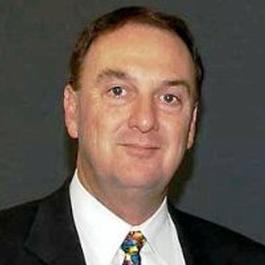An Australian Franchisee Case Study

Name: PHILIP COOK
Location: CARINDALE, BRISBANE, QUEENSLAND
Franchise: DYMOCKS BOOKS
Why did you go down the franchise route? And why did you choose Dymocks Books franchise?
I have always advised others that, when choosing a career, you should choose something that you enjoy and that you are good at. In my case, I had learned a few lessons from a career in government; I was a prolific reader and I loved books; so a bookshop was a natural place to establish a business.
Franchising seemed like a sensible way to go into small business, with support. The advantages for me, in terms of the Dymocks brand, included Dymocks’ long and established place in the book market in Australia and the high level of support provided, particularly in the areas of buying, marketing and IT.
What did you do before taking up your Dymocks Books franchise?
I had a long career in government, at quite a senior level, where I developed a skill set which has proved to be largely transferable to this industry. One of the most useful things I did was complete a Research Masters Honours in Administrative Leadership, which has provided me a valuable, marketable set of skills.
How did you raise the finance?
I went in to business with my brother in law – who had proceeds from the sale of a previous business, and I found my contribution from savings. We were fortunate in that we bought at the right price from a Receiver, so we did not have to borrow, except for the rent guarantee.
What training and support did you receive initially and ongoing?
Dymocks provide an initial period of two full weeks training and then on-going training through Regional Managers and on the spot virtually 24/7 support across a range of areas. There is ongoing networking with franchise meetings and conferences.
What is a typical day for you as a Dymocks Books franchisee?
6.30am – 6.30pm. Duties vary from meeting with book reps to buy books; buying and ordering via electronic means; receiving stock into the store including stock control and preparing for stickering; store management; HR including recruiting, supervision, and performance review; merchandising; customer service (as required – often relieving for lunch breaks); problem solving; credit management and accounts payable (MYOB) and liaison with the franchisor.
What challenges have you faced?
The most significant challenge I’ve faced is ensuring that the business remains sustainable. With high rents; high wages; high levels of discounting plus franchise fees, the margin between what you receive and what you pay needs to be managed carefully. In this industry, it’s very easy to put what profit you earn into inventory, and when cash is short, that means that if it hasn’t sold – so you need to send books back.
This all sounds easy, but returns are a complex and time consuming process which need to be done in a meticulous manner – applying; receiving; picking; checking; modifying; de-stickering; packing; labelling and, finally allocating the credit against payments. The real challenge is attention to detail – anything done quickly and carelessly will cost you money.
A second challenge that most franchisees will face is learning about your industry. In my case this means being across industry trends; having a deep understanding of what will sell (and how much) and what will not; learning about how you can negotiate the best deals in buying; understanding how to sell what you have; and learning how to inculcate world-best standards of customer service into every transaction.
A lot of my colleagues will say that a third major challenge in this industry is competitor discounting. My reaction to this is that if you want to complain about competition, sell coffee – there are around 40 coffee outlets in our centre, but only four places that sell books!
Has becoming a franchisee changed your life, if so how?
I would have to say that franchising has changed my life. Franchising is something more than retailing – in my case it is also about representing a national brand that has been operating for 135 years. It sounds a bit trite, but when you operate a Dymocks, people will have high standards which they expect of you, and which you are, quite literally obliged to meet.
On the other side, customers come to Dymocks and they are able to be provided with a range of books and a service standard which is unlikely to be replicated anywhere else in the world. So, in short, it’s about seeking and reaching the highest standards; never being satisfied; and always seeking to provide that level of customer service which the customer will regard as extraordinary.
Franchising also changed my life in that this is the first time I’ve ever worked for myself, and you quickly realise how important total commitment is. I remember my son commenting, ‘you’ll understand about franchising when you love this place so much that you are tempted to sleep here!’
What marketing/promotional tools do you use to grow your franchise?
Marketing changes. When I first started in business I spent an extraordinary amount of money in radio advertising telling the public that we were here; telling them about the (fantastic) product we had; and telling them that it was a family owned and operated business. At the time, that was the right strategy.
This was supported by a fantastic marketing team at Dymocks Head Office, for whom nothing was too much trouble. They have gone out of their way to provide the tools for me to market my business – and that doesn’t happen everywhere. In many places, you just take what you get!
Nowadays we use a range of other tools from events to electronic media, social networking, visual marketing and most important fantastic customer service.
What differentiates your franchise from the competition?
Sometimes when the Dymocks support team walk into our store I am sure they think it is slightly to the ‘left’ of a standard Dymocks. No matter what your franchise, I believe you need to personalise and differentiate it. Our store is differentiated by stock density and quantity; visual merchandising; and hopefully most importantly by an exceptional customer service team.
In your opinion, what makes a successful franchisee?
In my old world, I used to say you would rarely see a good school without a good principal. So it is in business. Without a quality leader, the business will falter. The franchisee needs to have a complete understanding of the business, and that begins with knowing first ‘who you are’. For example, what is it that you are passionate about; what are the unalienable ‘tight properties’ of the business? What impression is it that you want every customer to leave the store with? What are the qualities your staff need to embody every minute of every day? What values do you have that will permeate every interaction with staff and every transaction?
After this, franchising is hard work. I rarely met a franchisee who did not do the hours in his business. When you walk into the centre at 6.30 am you will meet business owners and early shift workers. Franchising isn’t about rising at 9 and playing golf two afternoons a week. It is, certainly in start-up, MORE than a full time job.
Your franchise will also be successful if you employ the right people. At one time or another, every person in your business will represent you, and your business will be judged as such. If you employ clock watchers, or glum faced people, or people who struggle to function happily in a team, you are destined to fail. Recruitment is critical. It should be done strategically and carefully.
Successful business is also about attention to detail. Just as the first rule you tell a learner driver is, ‘Always give yourself an ‘out,’ so it is in business. You need to operate strategically so there are as few surprises as possible and so that when the difficulties emerge, you are prepared for them.
What advice would you give to someone thinking of buying their first franchise?
The first thing I’d say is that you should make sure that you do not enter a franchise under-capitalised. Most businesses that go under do not fail because they are inherently unprofitable; they die because of cash flow. The nature of business is that you need reserves, because the equations of business do not always operate on time. For example, your creditors will demand immediate payment according to their terms, but sometimes your debtors will be tardy in their payments. Thus you need to ensure that you do not operate on the very edge, or you are certain to succumb.
The second piece of advice is that you should do all of your negotiating as hard as you can before you sign the franchise agreement or the lease. Once they are signed, they are usually set in concrete and difficult, sometime impossible to change. Do your homework carefully; estimate turnover and income at very low levels for these purposes, and negotiate your payments accordingly.
Thirdly, if you can, involve your family in the business. They will have the highest levels of commitment (because they have the most to lose) and you may get better value out of the hours (and extra commitment) that they contribute.
Fourthly, understand that operating a successful franchise is very much about relationships. If you are looking for a place to throw your weight around and postulate on how important you are, if it’s all about your ego, franchising is not for you. Your most important skills will be the ability to listen; to empathise; to care for others and to work as part of a team.
Fifthly, if you want to grow your business and be successful, my advice is to never be satisfied; never be complacent; and never think that you are ‘there’ and that you have achieved your goals. Successful franchisees always question; always seeking a better and more profitable equation.
Finally, if you are thinking about buying a franchise, never forget that it’s important to have a bit of fun in your life. If what you’re considering seems drab and boring – don’t even consider it. If what you’re planning excites you and you know you’ll enjoy it, then, after doing all the preliminary work, take the leap. For the right people, and I’m one of them, franchising can be highly rewarding.
What are your plans for the future?
I intend to build this business as much asI can and look towards what else I can achieve. I intend to expand my leadership consulting business, providing advice to business and industry.
Would you do it again?
Definitely, although with the wisdom of hindsight, I’d do a few things differently. I’d have to say though, it’s been one of the most rewarding experiences of my life.
Request information on franchise ownership of
Dymocks franchise

